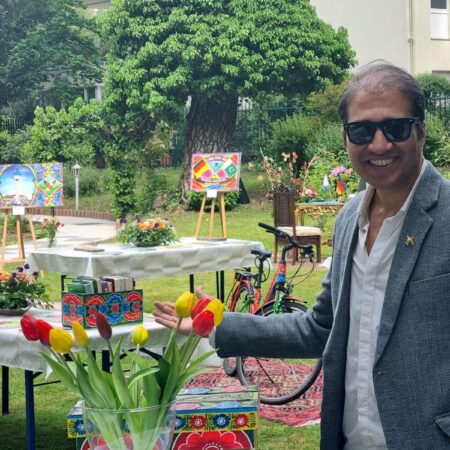Engin Altan Duzyatan, a Turkish actor who portrayed Ertugrul in the well-known Turkish television series Diriliş: Ertuğrul, gave appreciation to Pakistan and its citizens for helping him gain popularity outside of Turkey.
Speaking with actor Nurgul Yesilcay at the Red Sea International Film Festival, Duzyatan claimed that while Turkiye and global audiences were comparable, he discovered that Ertugrul received more attention after acting in the film.
He insisted that, in contrast to Turkiye, it was more well-liked throughout the rest of the world, particularly in Pakistan. This character is beloved by the people of Pakistan. While viewers may be comparable worldwide, things are really different in Pakistan, according to Duzyatan.
When asked how the role affected his personal life, Duzyatan responded that it didn’t alter who he was. Nevertheless, he explained that there was only one page about Ertugrul in history books and that it affected him in the same way that he affected the character. He also affected the role while he was working on the show because not much was known about him.
Even though I value every role, Ertugrul was particularly noteworthy since it helped me get international recognition. In addition, portraying various phases of the character’s life was part of the role.
Speaking about his favorite character, he revealed that he had been performing professionally since the age of 20 and had started at the age of 15. At one point in his life, he said he wanted to portray Mustafa Kemal Ataturk.
In response to a question about whether he was shocked to receive an invitation to the Saudi Arabian film festival, Duzyatan said he felt honored because it was such a significant event.
“Movies unite people from various nations.” We are discussing love and movies here, which bring joy to people throughout times of war and strife.
After a while, one realizes that “acting is not enough as you act on somebody else’s ideas and you are a small piece in a large project,” the Turkish actor noted in reference to his transition from acting to producing. You wish to create and present your own narratives.
Before taking on more ambitious projects, Duzyatan produced two documentaries, saying that production needed just as much imagination as acting.
Speaking on the distinction between performances on television and cinema, he claimed that because of time constraints, a character in a television show was not as deep as one in a film, particularly because films went deeper and had a bigger influence on the artist.
In response to a question about whether he found any roles difficult to play, Duzyatan brought up the Jannat television series, in which he portrayed a character who was experiencing madness.
However, Yesilcay claimed that she found it challenging to perform the part of a deaf person in Adam and the Devil. She claimed that because she had theater training and had performed as a variety of characters in different settings, she had never noticed a difference between television dramas and movies.
She also mentioned that she developed a phobia after fainting on stage during a theatrical performance last year after taking a break. “Once I got over my fear, I would return to the theater.”
Yesilcay claimed that in order to get parts in the upcoming series, she studied with acting instructors. “I do other things, like painting, after every drama before returning to acting.”
A documentary about Turkish dramas
A documentary about the emergence of Turkish television series was shown following the session. Cast members Duzyatan and Yesilcay joined the audience while viewing the movie.
According to the documentary Tales on the Banks of the Bosphorus, the Turkish drama industry grew from $300,000 to $1 billion. Some of the most well-known figures from the Turkish entertainment sector were there.
The documentary, which was directed by Zeina Sfeir, focused on how the first Turkish drama to be broadcast in Azerbaijan marked the beginning of the genre’s rise. Following the 2008 broadcast of 1001 Nights in the Middle East and North Africa, its popularity in these regions grew rapidly. Turkish dramas thereafter began to be shown across central Europe.
The video claims that Turkish dramas are currently viewed in almost 150 nations worldwide, including East Asia and South America. Background music and local language dubbing are two factors contributing to the industry’s daily growth.












No Comment! Be the first one.